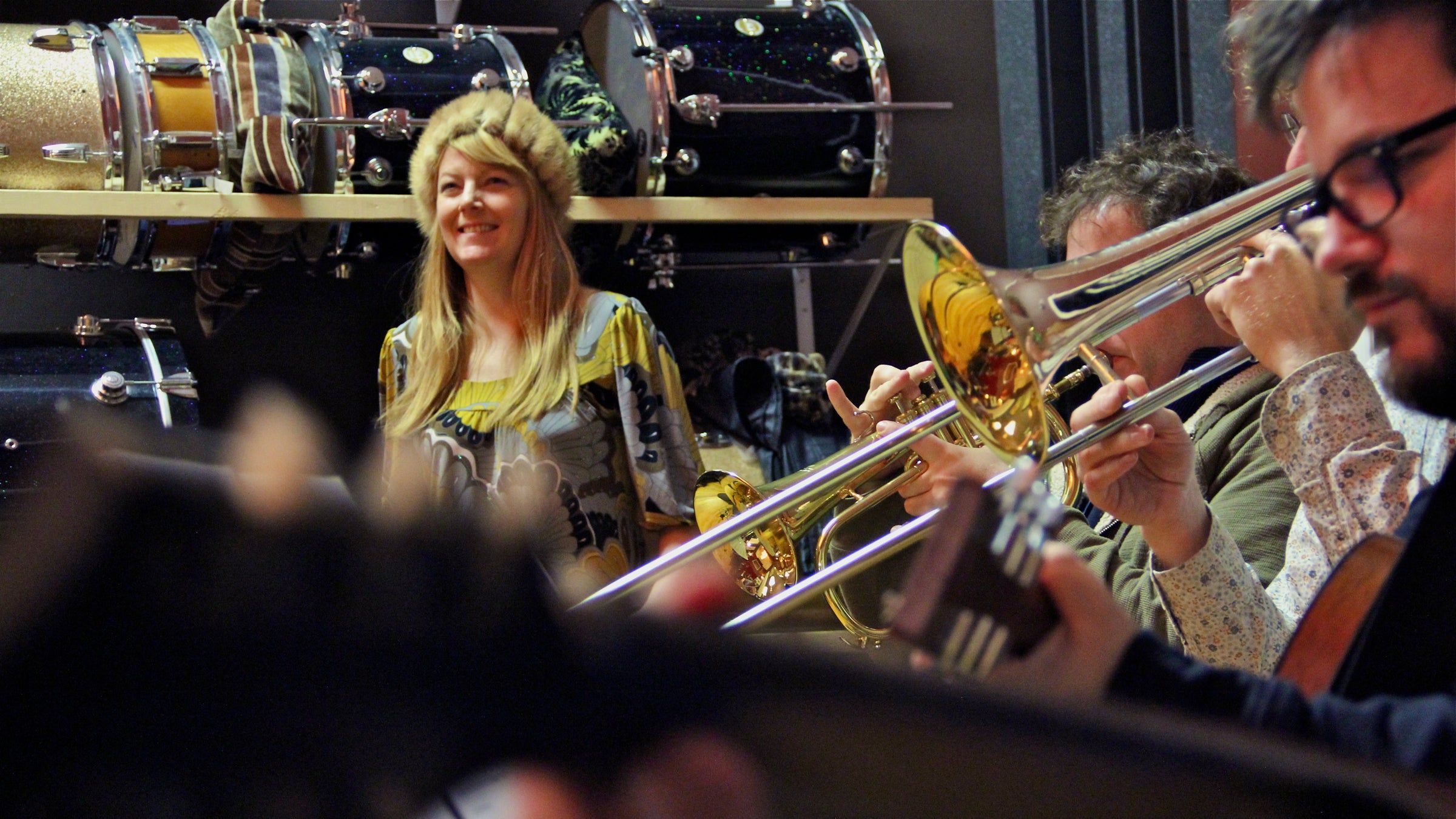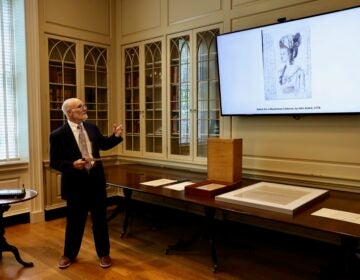Delving into the mysteries of ‘Ode to Billie Joe’ and the elusive Bobbie Gentry
Listen
Author Tara Murtha sits in on a rehearsal at Retro City Studios in Germantown. (Emma Lee/WHYY)
In 1967, the Beatles’ “All You Need is Love” was knocked out of the No.1 spot on the charts by a slow, plaintive ballad by the unknown singer-songwriter Bobbie Gentry.
“Ode to Billie Joe” was Gentry’s first hit and biggest hit. The simple song — with only two chords, no chorus, just a voice accompanied by acoustic guitar and a string section for color — contains a mystery that remains to this day: Why did Billie Joe McAllister jump off the Tallahatchie Bridge, and what had he and the song’s narrator previously thrown off the bridge?
“The only mystery bigger than why did Billie Joe jump off the Tallahatchie Bridge is: where is Bobbie Gentry?” said Tara Murtha, the Philadelphia author of a book-length study of the album and subsequent career of Gentry. “Ode to Billie Joe” is published by Bloomsbury as part of its 33 1/3 series.
The first question was never meant to be answered. Gentry’s Southern Gothic lyrics — about a family’s inability to communicate with each other over supper — is made richer by the unexplained mystery.
The second question — what happened to the song’s author — is the subject of Murtha’s book. Gentry released records on the Capitol label for just five years. In the 1970s, she turned her creative energy toward lavish musical stage productions. She was a regular headliner in Las Vegas.
After a short and successful run with a variety show on the BBC, Gentry tried to establish a similar show on American television, which never panned out. After that, she sort of disappeared in the early 1980s.
“Even people she was very close to were surprised they were not in her inner circle,” said Murtha, who spent five years tracking down Gentry and associated Bobbiebilia. “I was calling to interview people, and they would answer the phone and say, ‘Where is she? What happened? What’s she doing?’ They had more questions for me than I had for them.”
Murtha was attracted to Gentry because of her artistry, her mystery, and her complex feminism. Gentry was sexy, and she knew it. She personally controlled almost every aspect of her career and her stage persona. Her stage dress could range from cutoff dungarees and tied-up blouses, to hip-hugging bell-bottom jumpsuits.
“In 1974, a writer asked her, ‘Are you feminist? You wear fake eyelashes and play your femininity to the hilt, and you do all these things that don’t seem feminist,'” said Murtha. “Fast forward almost 50 years, and Beyonce is being asked the same question.”
For her book release, Murtha organized a pick-up band of eight local players headed by musician Phil D’Agostino to re-create every track on the album “Ode to Billie Joe,” in order, for a performance at Underground Arts in Philadelphia.
The show revealed that the song “Ode to Billie Joe” was not just unusual for popular radio — at 4:15 it was consider much too long for heavy rotation play, which it got nevertheless — but also unusual for Gentry. Some of the songs on the album are loud, electric, bluesy rock with an over-the-top sensibility that Gentry took to extremes in her Las Vegas shows.
The track “Mississippi Delta,” with rough vocals and rock guitar, was originally intended to be her debut single. “Ode to Billie Joe” was on the other side.
WHYY is your source for fact-based, in-depth journalism and information. As a nonprofit organization, we rely on financial support from readers like you. Please give today.





